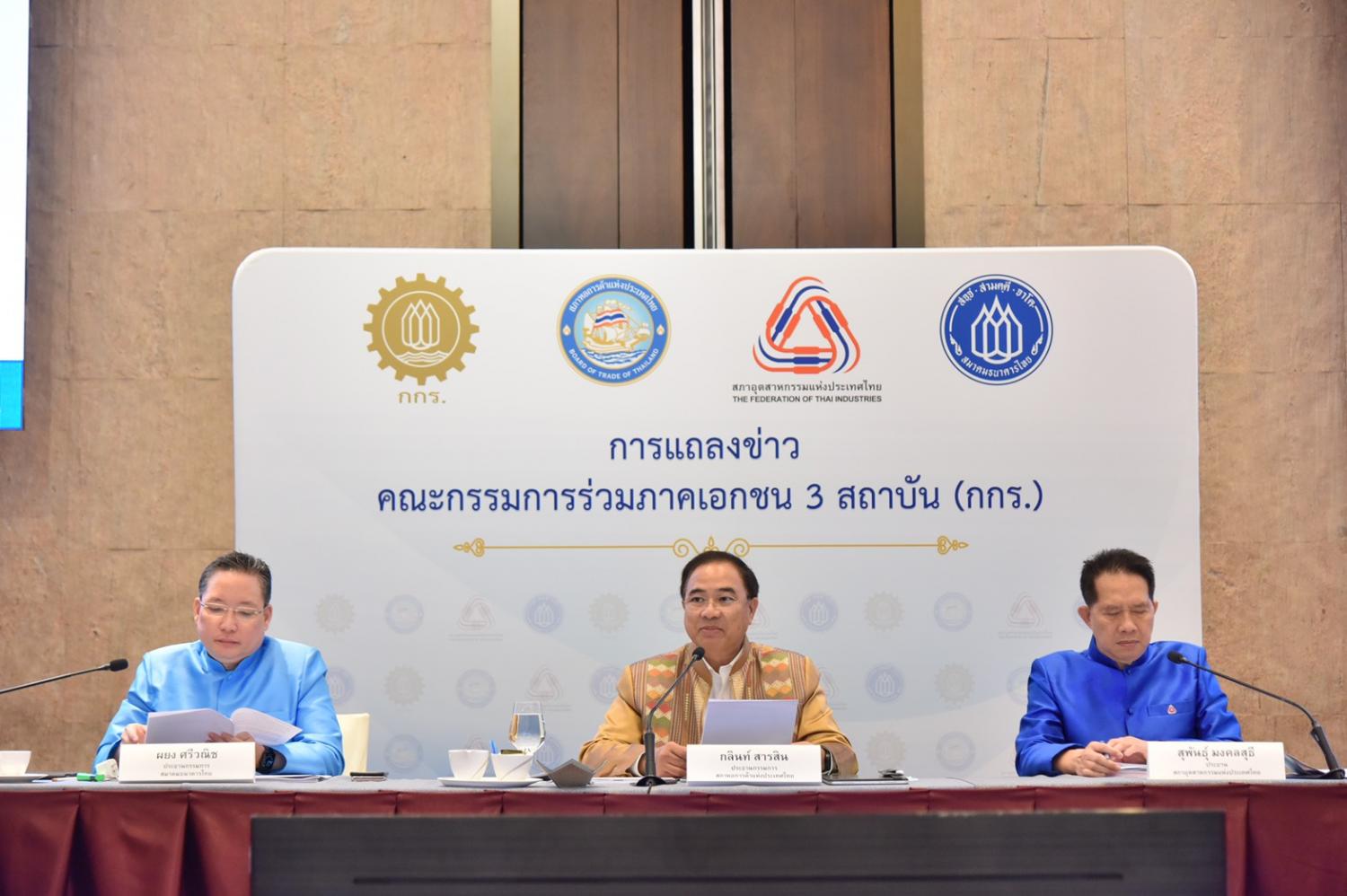
The powerful business group Joint Standing Committee on Commerce, Industry and Banking (JSCCIB), is maintaining its economic forecast at 7-9% contraction this year, amid mounting concerns that the second wave of outbreak in many foreign countries may deter Thai economic recovery in the final quarter of the year.
Kalin Sarasin, chairman of yesterday's JSCCIB meeting and the Thai Chamber of Commerce, said the farm and industrial sectors, such as automobiles and parts, computers and plastic pellets, had started recovering in the third quarter in line with global market demand.
On the domestic front, consumer spending was also found to improve, boosted by a slew of economic and consumption stimulus measures.
"We keep our economic forecast at 7-9% contraction for this year, as the second wave of outbreak remains a key risk for Thai economic and export prospects after new cases were reported in many foreign countries, leading to many European countries returning to lockdown," he said.
According to Mr Kalin, the committee expects the new lockdown measures may affect the Thai economy by 0.37-0.5 percentage points in the fourth quarter, as purchase demand for imported products is expected to slow down during this period.
Overall Thai exports are expected to drop by 8-10% this year, with headline inflation expected to stay in the range of -1.5% to -1%. Nonetheless, Mr Kalin said JSCCIB will adjust Thai economic prospects in the next quarter.
"Overall, the economy is improving, based on recovering advance bookings for pickups driven by higher farm product prices," he said.
"If there is no second wave of outbreaks in Thailand, or we can control the disease in a limited area while injecting money from the government's stimulus measures such as the co-pay measure and tax rebate for shopping, we, the private sector, feel upbeat that economic activities in the fourth quarter will become active and help stimulate the economy."
Regarding the US presidential election, Mr Kalin said if Joe Biden from the Democrat Party wins, global trade is expected to become more open and the US is likely to return to the Comprehensive and Progressive Agreement for Trans-Pacific Partnership (CPTPP).
CPTPP replaced the Trans-Pacific Partnership (TPP), a similar trade pact that included the US until the Trump administration decided to withdraw.
CPTPP is made up of 11 signatory countries whose economies represent 13.4% of global GDP, some US$13.5 trillion.
If the victory goes to President Donald Trump, Mr Kalin expects the same international trade spat will persist and become more intense.
The private sector also urged the government to step up free trade agreement talks with key trading partners, including the United Kingdom, the EU and the CPTPP.
JSCCIB proposed that the government set up a joint working committee between related ministries and private sector to study and prepare for contentious issues, such as crop protection, compulsory licensing of pharmaceuticals, labour protection and government procurement, to avoid losing out on world trade opportunities.